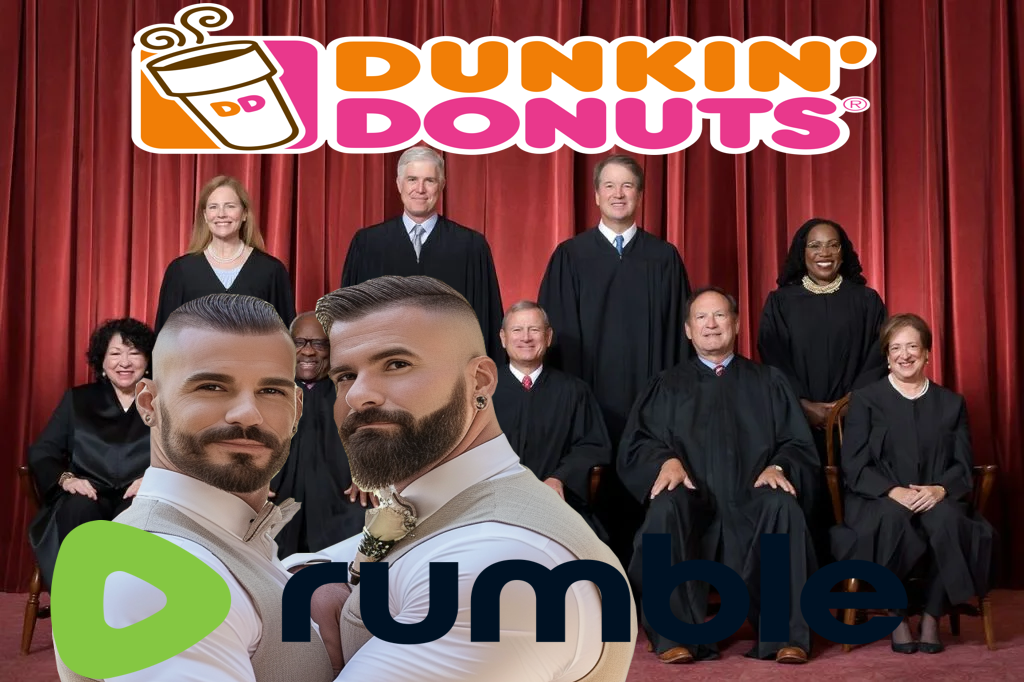The recent Supreme Court decision in 303 Creative LLC v. Elenis could have unintended consequences for conservatives, particularly in the controversy surrounding Dunkin’ Donuts and Rumble. In this landmark case, the court ruled that a business owner could refuse to provide services for same-sex weddings based on First Amendment rights. While this decision was seen as a victory for conservatives, it sets a precedent that businesses can refuse service based on ideological differences.
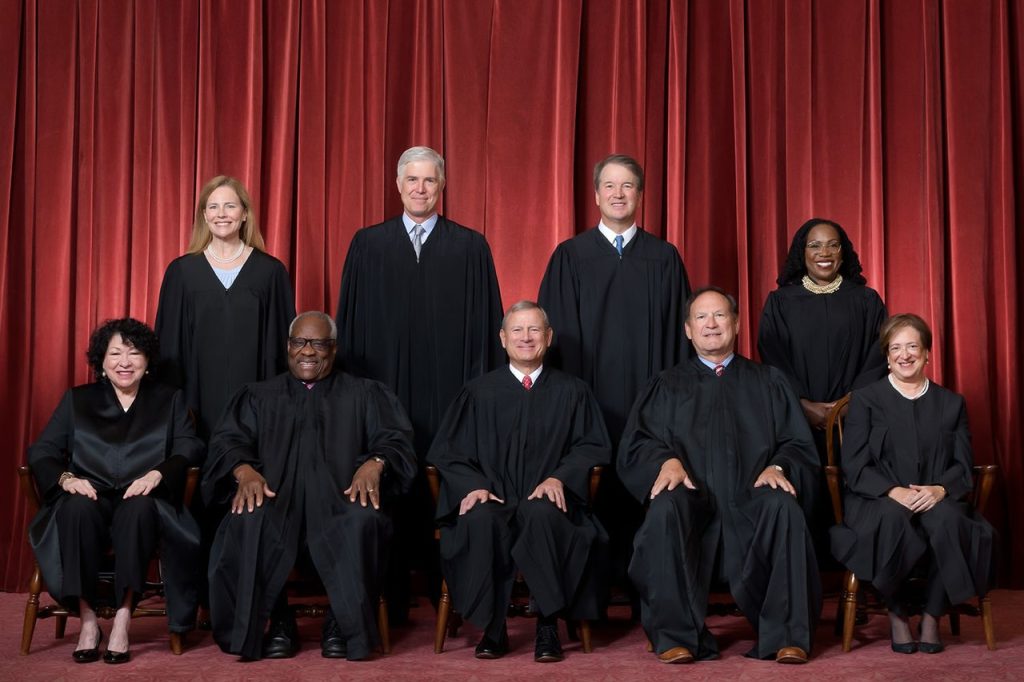
This precedent is now playing out in the case of Dunkin’ Donuts. MAGA-influencers on X, formerly known as Twitter, have called for a boycott of Dunkin’ Donuts following allegations from Chris Pavlovski, CEO of Rumble. Pavlovski claimed that the fast-food chain declined to advertise with Rumble due to the “right-wing culture of the site being too polarizing.”

Pavlovski posted on X that Rumble had approached Dunkin’ Donuts and its parent company, Inspire Brands, to consider placing ads on Rumble, citing that their audience has a high consumption rate of coffee. However, this request was allegedly rejected. Pavlovski shared a screenshot of a redacted email reply from Dunkin’ Donuts, stating: “To be honest, [redacted] I would be opposed to showing up on the current version of the platform—the right-wing culture of the site is too polarizing from a brand suitability standpoint today.”
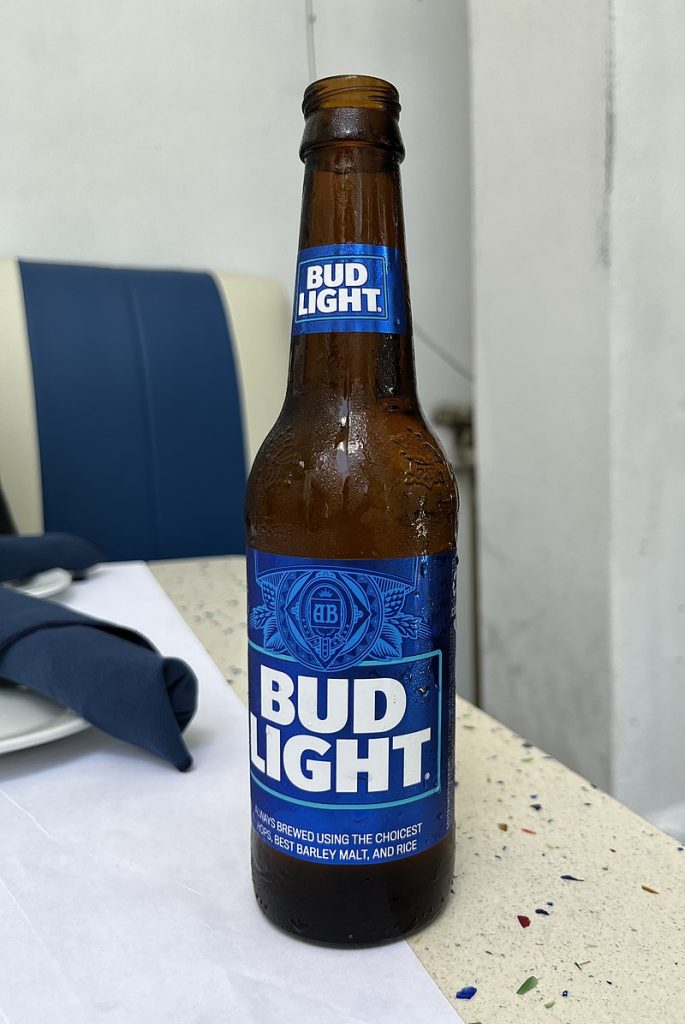
This incident has led to significant backlash from right-wing influencers on social media. One prominent MAGA influencer urged followers to boycott Dunkin’ Donuts, stating, “Boycott them. We have to stick together.” The post quickly gained traction, being viewed over 360,000 times by Thursday morning. This call for a boycott is reminiscent of the Bud Light boycott by conservatives in 2023, which was sparked by the brand’s partnership with a transgender influencer.
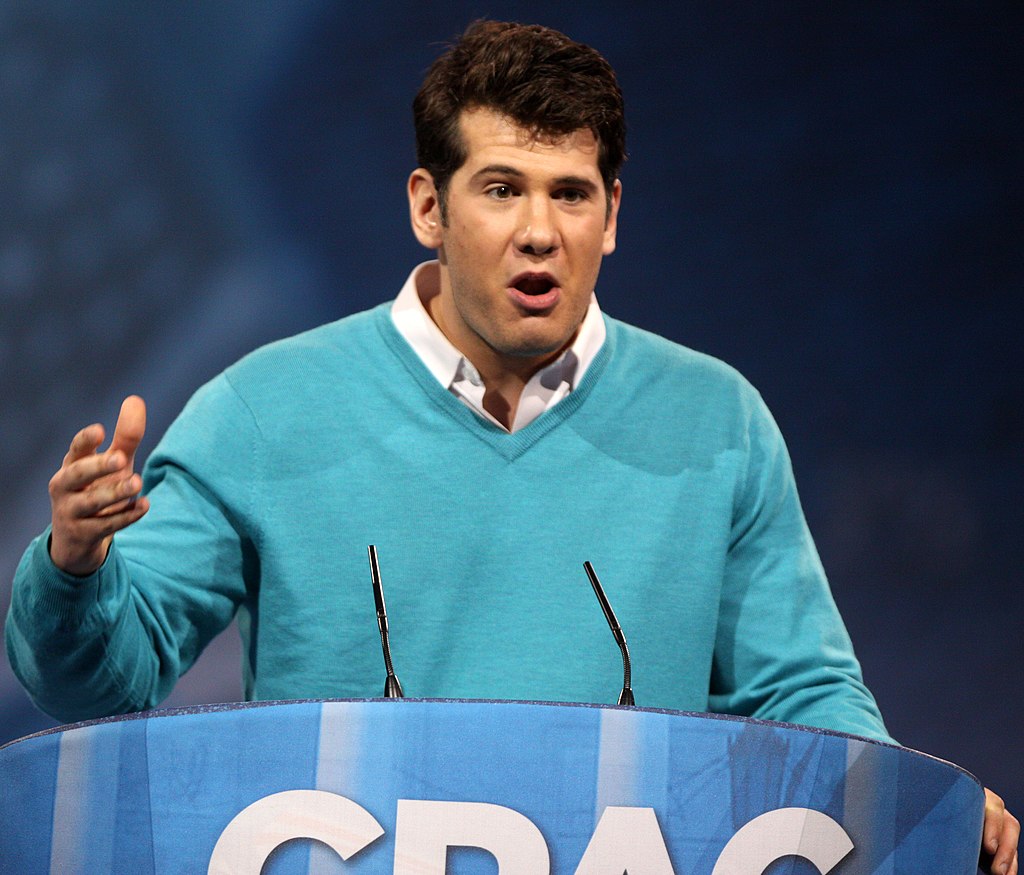
Adding fuel to the fire, Rumble’s CEO specifically mentioned that Dunkin’ Donuts had requested the platform to drop right-wing political commentator Steve Crowder, which Rumble refused to do. This refusal has further galvanized the boycott movement among the right-wing community.
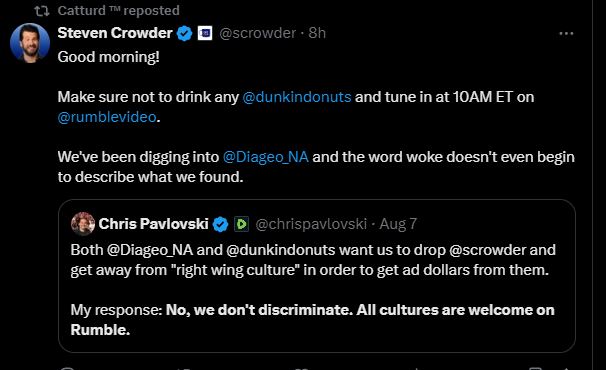
Prominent right-wing social media users have been responding with hashtags like #BoycottDunkinDonuts and #GoWokeGoBroke. Catturd, a well-known right-wing account on X, reposted several of Steven Crowders posts calling for the boycott.
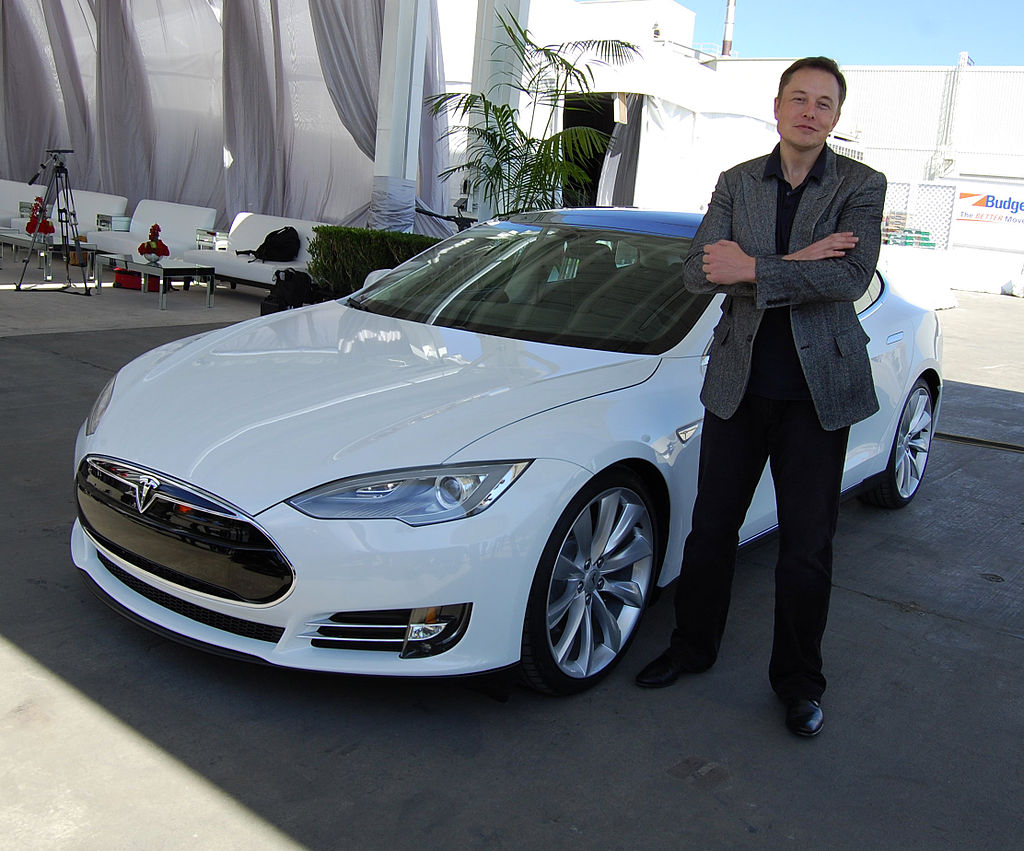
Rumble joined Elon Musk’s social media platform X in suing a group of advertisers, alleging a “massive advertiser boycott” that deprived the company of billions of dollars in revenue and violated antitrust laws. The lawsuit, filed in a federal court in Texas, targets the World Federation of Advertisers and member companies such as Unilever, Mars, CVS Health, and Orsted.
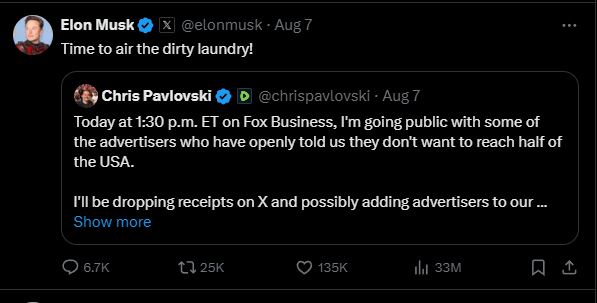
The lawsuit accuses the advertising group’s brand safety initiative, the Global Alliance for Responsible Media, of coordinating a pause in advertising after Musk acquired Twitter for $44 billion in late 2022 and implemented significant changes to its staff and policies. Musk took to X to announce the lawsuit, and reposted Pavlovski’s post regarding his intentions about advertisers.

Pavlovski explained that the Sherman Act, a federal antitrust law, prohibits the sort of activities that GARM has engaged in. He argued that GARM’s actions create a monopoly by assembling power and control to dictate certain standards, which is not a free market practice.
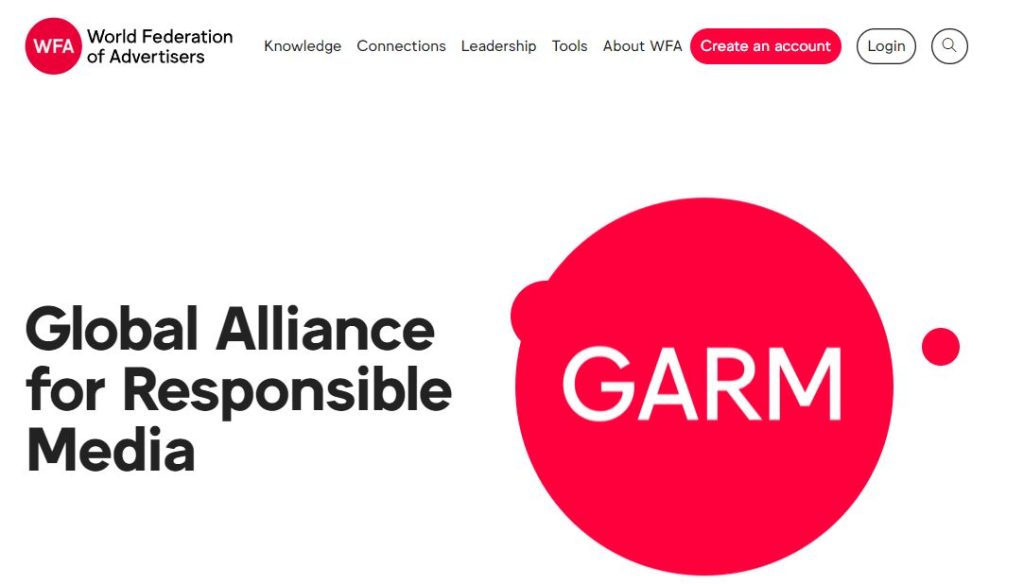
GARM, on the other hand, claims to be “apolitical” and “voluntary,” stating that it benefits its members by providing resources and information about best practices to avoid placing advertisements next to illegal or harmful content. However, in discussions about his approach to freedom of speech, GARM leader and co-founder Rob Rakowitz has expressed frustration with an “extreme global interpretation of the U.S. Constitution” and complained about using principles for governance as literal law. The Global Alliance for Responsible Media announced it is ‘discontinuing’ after the lawsuit was filed although GARM said it would defend it’s actions in court. As the situation develops, Dunkin’ Donuts and the advertisers named in the lawsuits will likely face increased scrutiny from both sides of the political spectrum. The impact of these boycotts and legal battles on their businesses remains to be seen.

